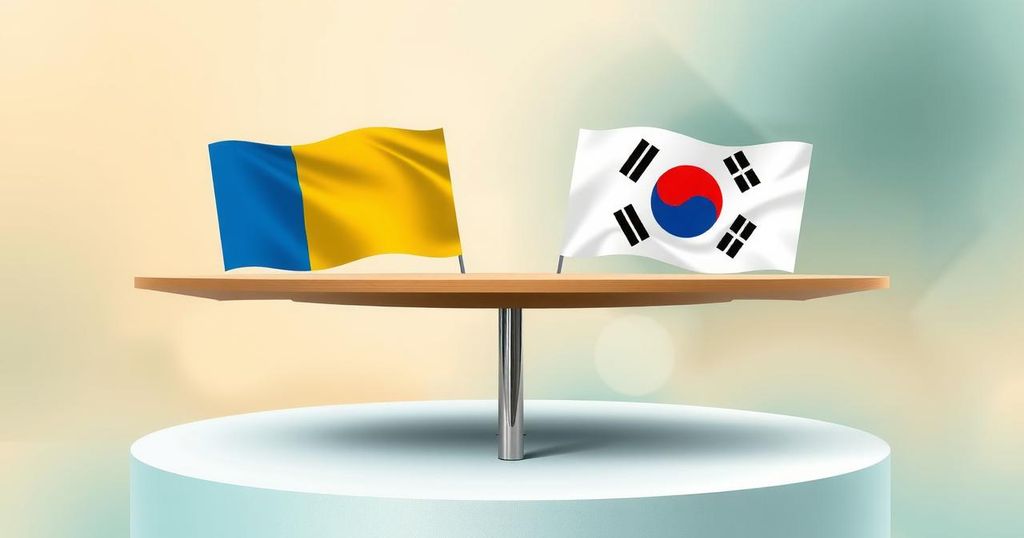South Korea and Ukraine Discuss Handling of North Korean POWs

Ukraine reports capturing North Korean soldiers amid their involvement in the conflict alongside Russia. South Korea requests cooperation with Kyiv on handling POWs, confirming readiness to accept any that wish to relocate to South Korea. Current assessments indicate substantial casualties among North Korean troops in the war.
Ukraine has recently reported the capture of North Korean soldiers in the Kursk region of Russia, amidst ongoing assessments suggesting that thousands have died or been injured during their involvement in the conflict. This marks North Korea’s significant military engagement in a war for the first time since the Korean War in the 1950s. In light of these developments, South Korea has initiated discussions with Ukraine regarding the handling of North Korean prisoners of war (POWs).
During a phone conversation on Monday, South Korea’s Foreign Minister Cho Tae-yul formally requested Ukraine’s cooperation concerning the North Korean POWs. He expressed Seoul’s commitment to assisting the Ukrainian people and stated that South Korea is prepared to accept any captured North Korean soldiers who choose to relocate to South Korea.
Current evaluations indicate that by early January 2025, over 3,000 North Korean troops have reportedly been killed or injured while fighting in support of Russian forces. Ukraine and allied nations have closely monitored this situation as it develops, considering the potential implications for regional security and international relations.
The discussions between Ukraine and South Korea regarding the treatment of North Korean POWs highlight the broader implications of the North’s military involvement in the conflict. With significant casualties among North Korean troops, South Korea’s willingness to accept these soldiers underscores a commitment to humanitarian principles amidst ongoing warfare. Moving forward, the cooperation between Kyiv and Seoul will be crucial in managing the consequences of this unprecedented military engagement.
Original Source: www.scmp.com








